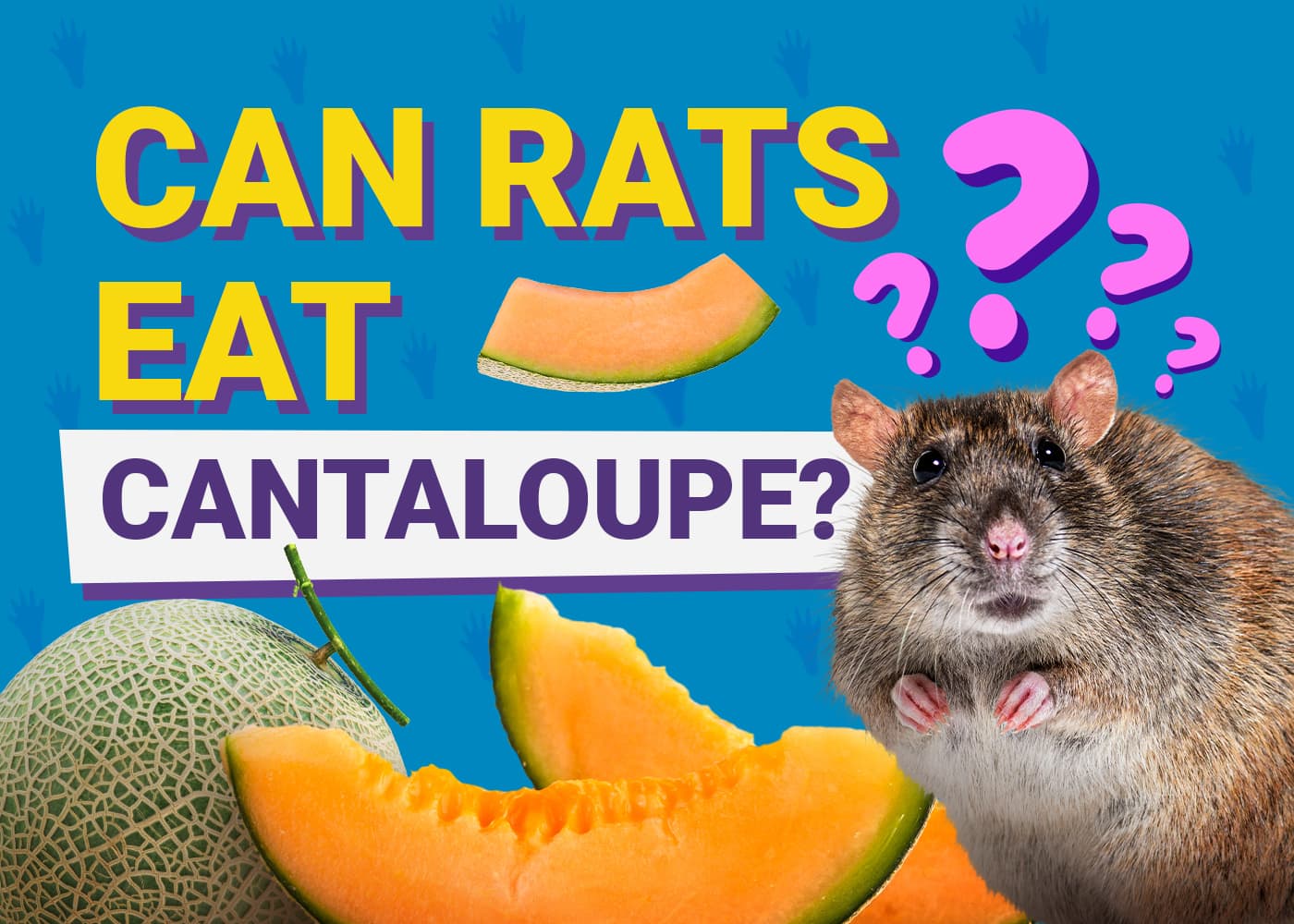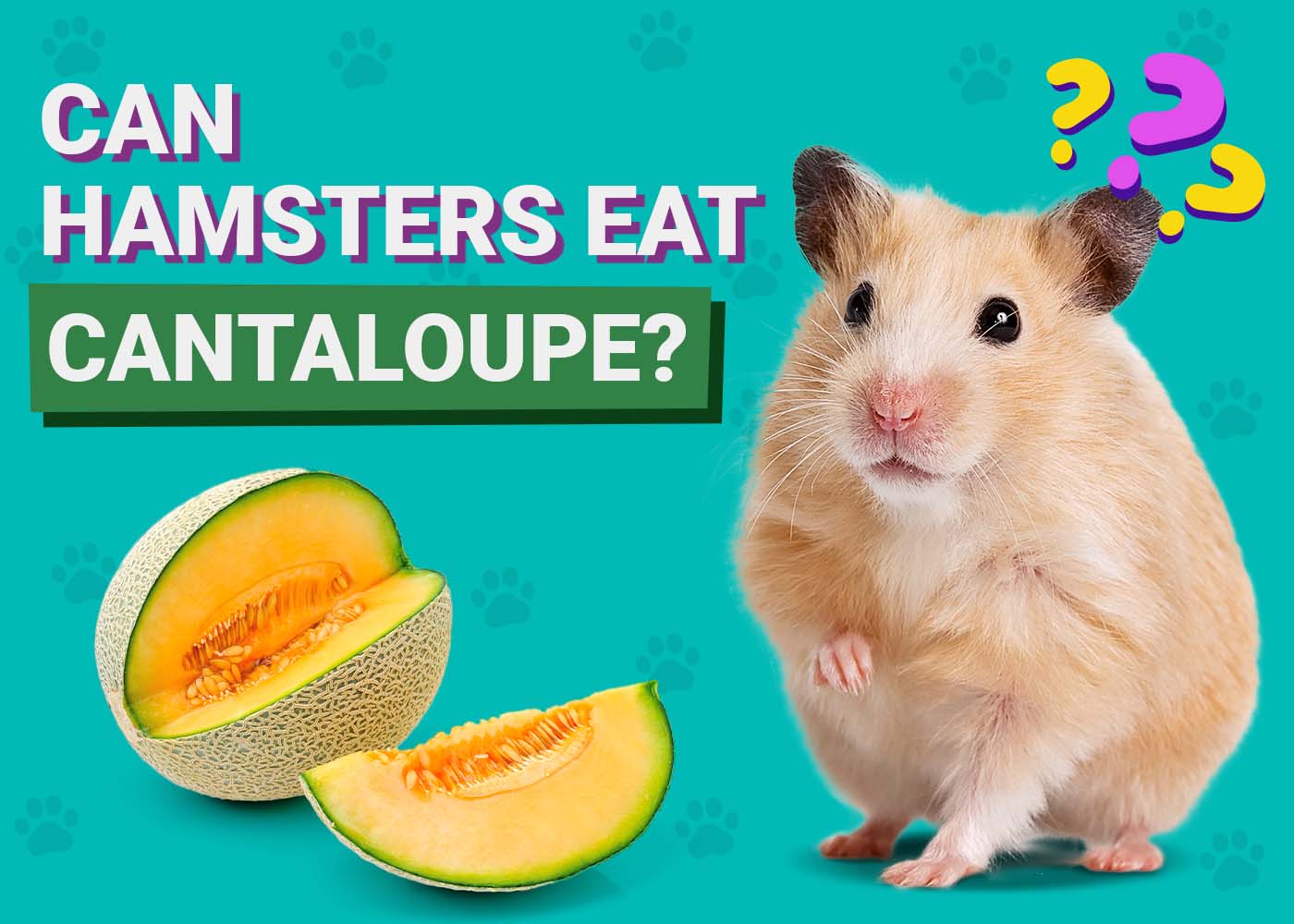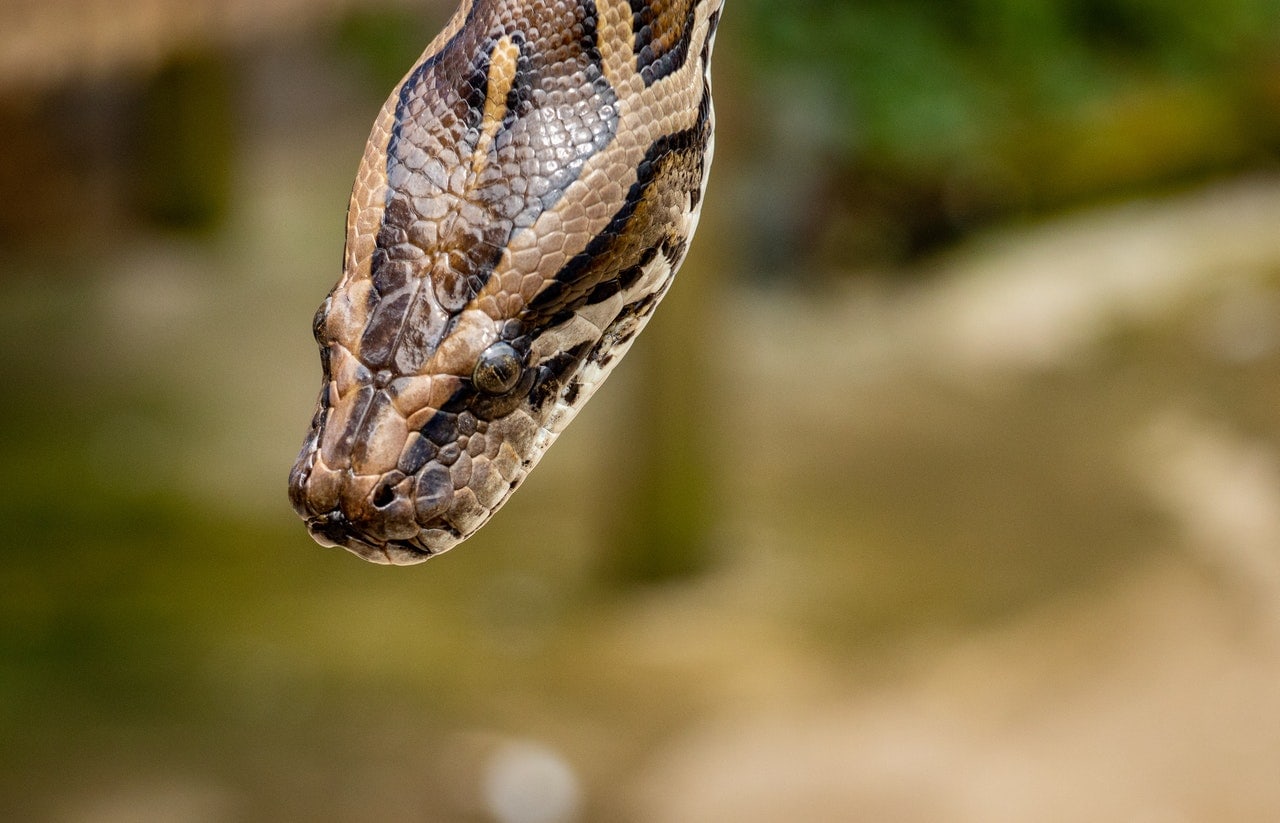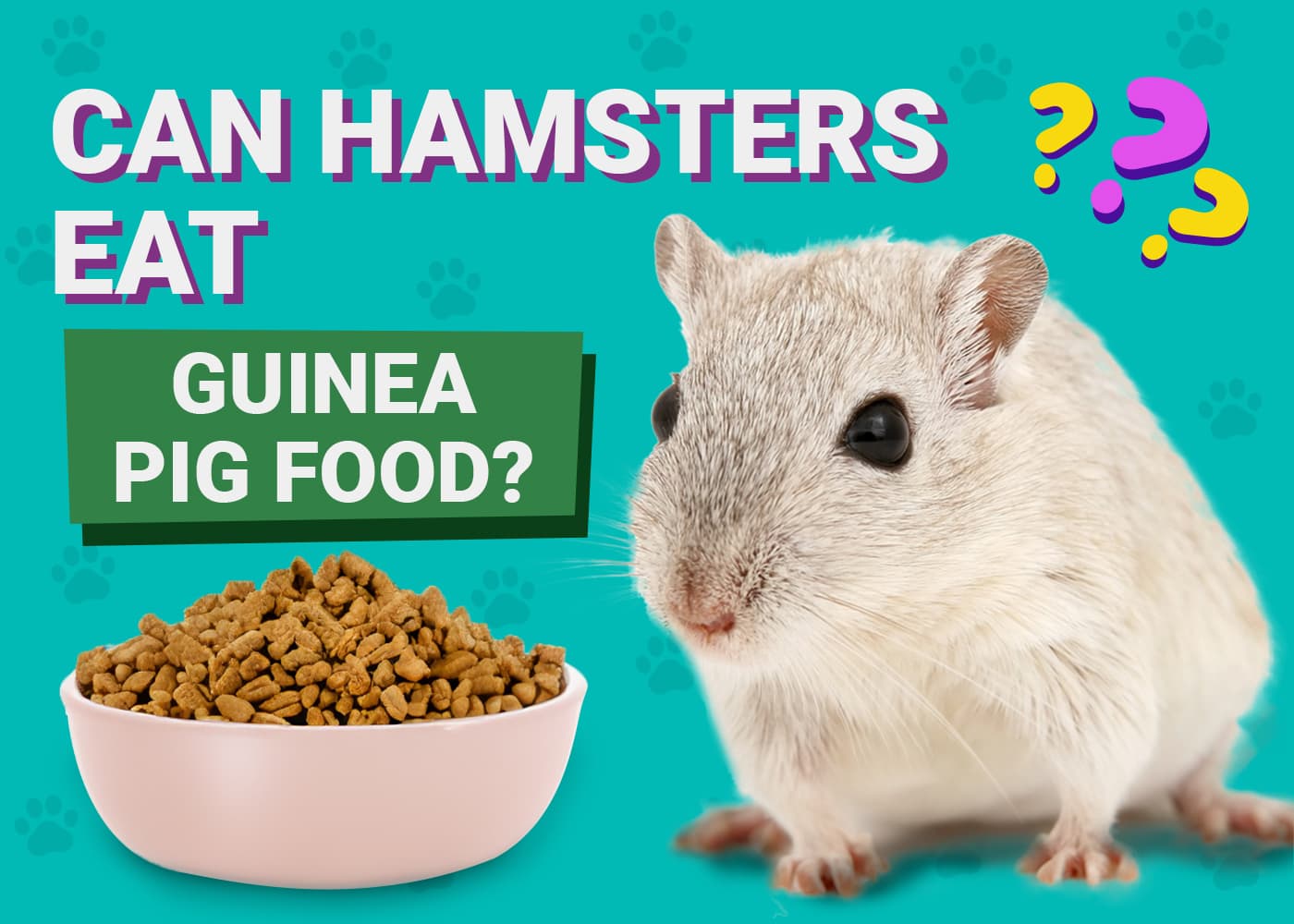VET APPROVED

The information is current and up-to-date in accordance with the latest veterinarian research.
Learn more »Pet rats are sort of like magicians. Once you put food in front of them, they can instantly make it disappear. Even though rats are known for eating just about anything, that doesn’t mean that they should be eating those foods. Of all the treats to give your pet rat, cantaloupe is one that many people wonder about.
Can rats eat cantaloupe? Yes, they can. Rats are omnivores, and it is safe for them to eat a wide variety of animal-derived proteins, vegetables, and fruits, including cantaloupe and other melons.

A Rat’s Diet
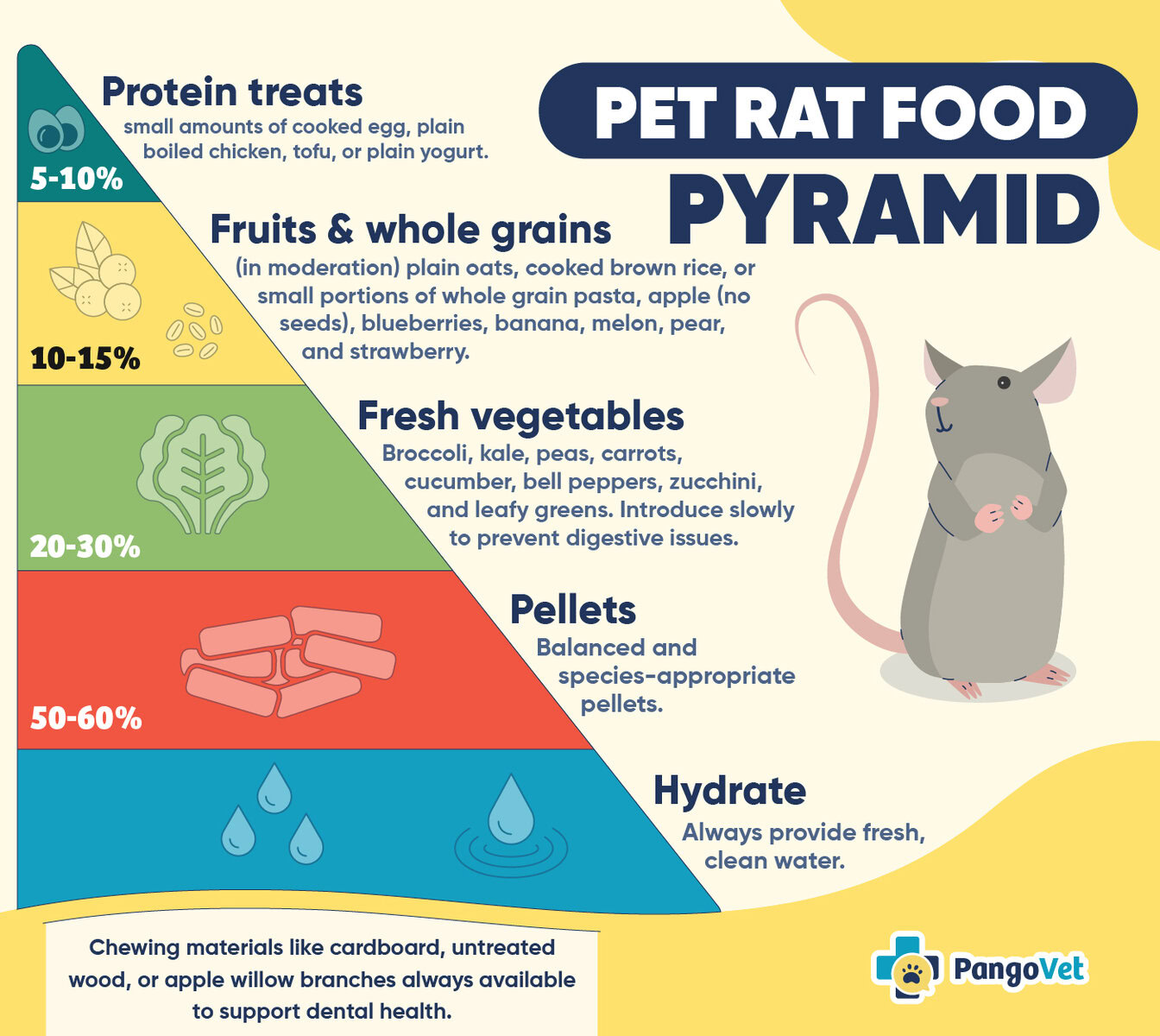
Much of the food you feed to a rat should be rat food that comes right from the pet store. About 75-80 percent of their regular diet comes from rat food, and the other 10-15 percent should come from veggies and greens, 5-7 percent can consist of grains and seeds, 3-5 percent can come from lean protein sources, while about 2-5 percent can come from fruit treats. While healthy, fruits are considered treats due to their fructose content. The list of safe fruits and veggies is almost never-ending, but you should always do your research to ensure that specific foods won’t harm them.
Can Rats Eat Cantaloupe?
Pet rats love to gorge on sugary treats like cantaloupe. It is sweet and juicy, and it is closely related to their other favorite treats from the watermelon family, like cucumbers, gourds, and pumpkins. But just because it is safe, does that mean it’s nutritious?

Cantaloupe Nutrition
A 1-cup serving of cantaloupe contains roughly 140–150 calories, though a rat-sized portion would be much smaller; typically just a small cube or two. This fruit offers several nutritional benefits including:
- Vitamin A (as beta-carotene) – Supports healthy skin, vision, and immune function.
- Vitamin C – An antioxidant that helps protect cells. While rats synthesize their own vitamin C, dietary sources can still be beneficial.
- Dietary fiber – Supports digestion and gut health.
- Minerals such as potassium (important for nerve and muscle function), zinc, iron, manganese, and selenium; though these are present in trace amounts.
The 3 Benefits of Feeding Cantaloupe to Rats
We know that these melons aren’t going to harm our pet rats when given to them in moderation, so what benefits, if any, do they get from it?
1. Digestion
Cantaloupe contains water and dietary fiber, both of which can help support healthy digestion. The fiber helps maintain regular bowel movements, while the high water content aids hydration, which is essential for gut function. This is especially helpful during warm weather or if your rat is recovering from mild dehydration.
2. Eye and Skin Health
Cantaloupe is rich in beta-carotene, a plant pigment that the body converts into vitamin A, an essential nutrient for maintaining healthy vision, skin, and mucous membranes. For pet rats, vitamin A plays a key role in supporting eye health, proper growth, and the integrity of the skin and respiratory tract. While rats produce vitamin A from dietary precursors, offering small amounts of beta-carotene–rich foods like cantaloupe can be a valuable and safe way to help support these functions.
3. Immunity
Perhaps the most significant benefit to feeding rats cantaloupe is the boost in immunity. Melons help fight off many diseases for rats because they contain phytonutrients, which have antioxidant and mild anti-inflammatory properties. These compounds can help neutralize free radicals and support overall cellular health.
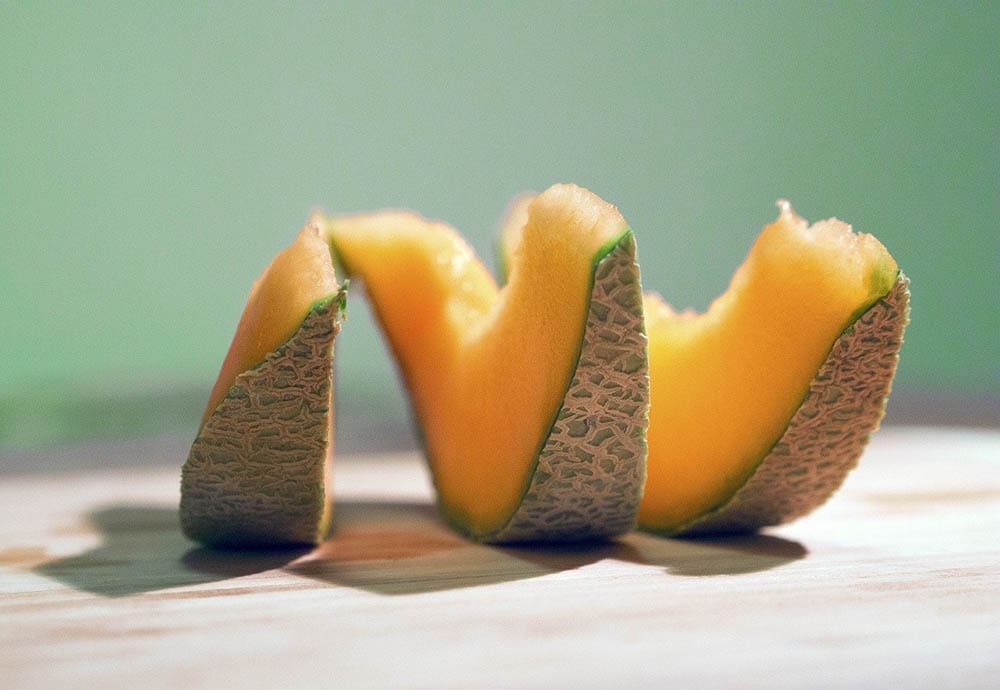
Dangers of Feeding Cantaloupe to Rats
Too much of a good thing can also be a little risky. While cantaloupe is safe and nutritious in small amounts, feeding too much can pose health risks for pet rats. Cantaloupe contains natural sugars, which if consumed in excess can contribute to obesity, dental issues, and digestive upset such as soft stools or diarrhea.

The 5 Healthy Snacks for Rats
Don’t limit yourself or your pet rat to only cantaloupe. There are many different treats that rats love to snack on. They’ll also appreciate the variety.
1. Grapes
If the grapes are seedless, they are a perfectly healthy option for rats. Purple grapes contain more antioxidants than green grapes, including compounds like resveratrol, which may help protect cells from oxidative damage.
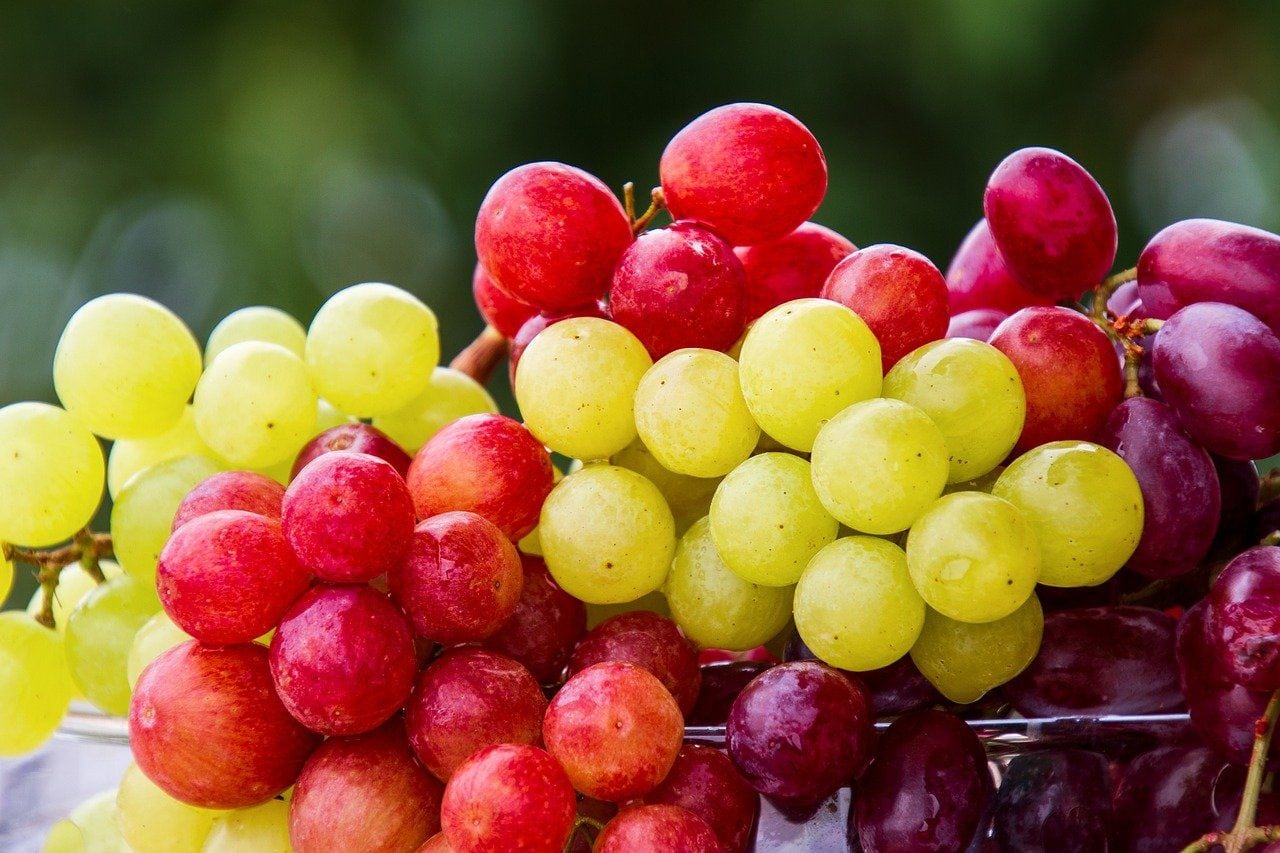
2. Apples
Rats love a few small slices of apple as a juicy dessert. Just be sure to remove all the seeds so that they are completely safe. Apple seeds contain a chemical called amygdalin, which is converted into toxic cyanide when chewed and metabolized. This isn’t much of a risk for humans, given our relative size compared with the apple, but for little guys like rats, it’s a different story, so be sure to remove those seeds!
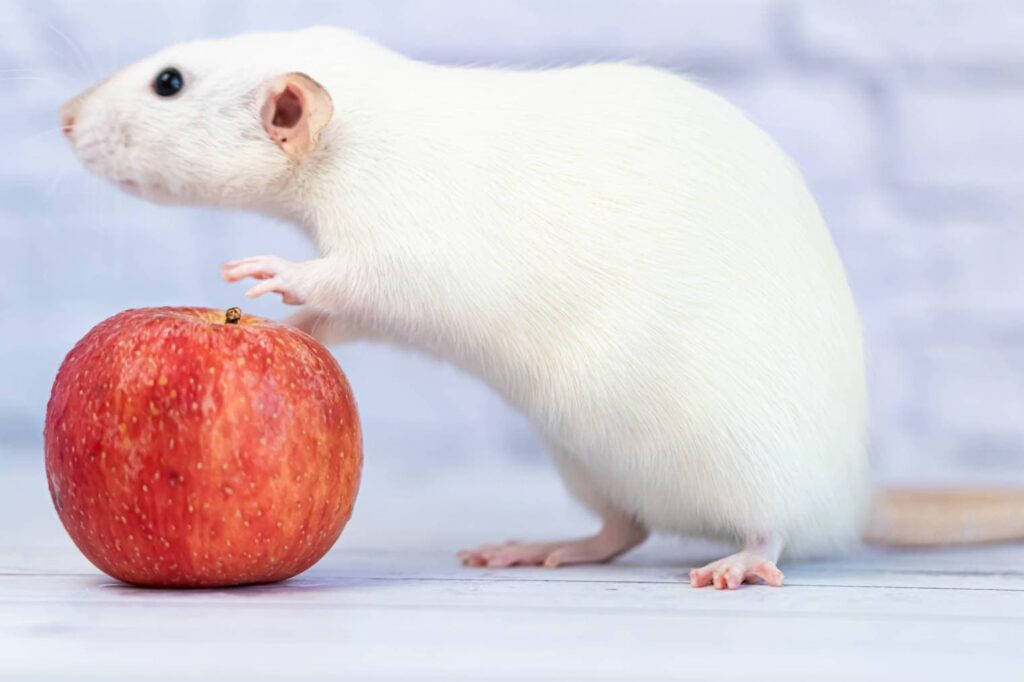
3. Bananas
Ripe yellow bananas are an excellent treat for pet rats. However, unripe, green bananas have been known to cause digestive problems, so make sure there isn’t a green peel in sight.
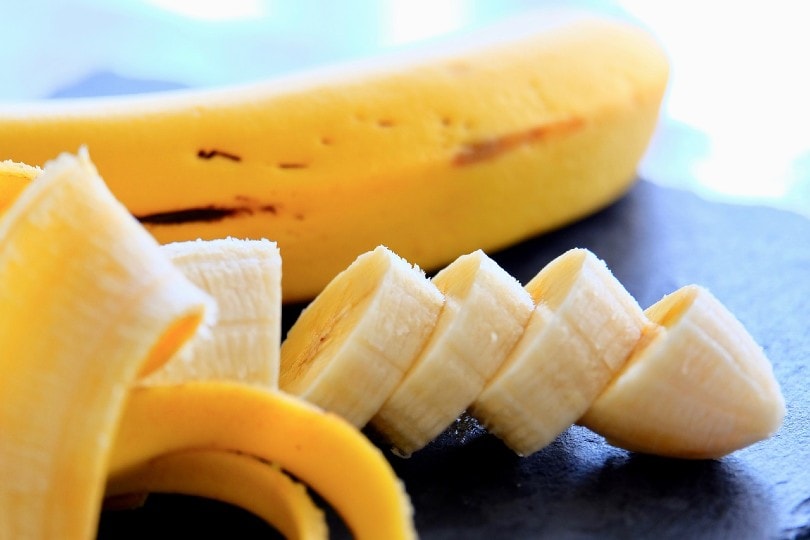
4. Tomatoes
Rats don’t always like the outer skin of raw tomatoes but they usually love the juicy inner flesh; just be sure to avoid unripe tomatoes and leaves as they contain solanine, a natural toxin that can upset their stomach. Tomatoes are also slightly acidic, so if you notice any irritation around your rat pal’s mouth, ease off the love apples.
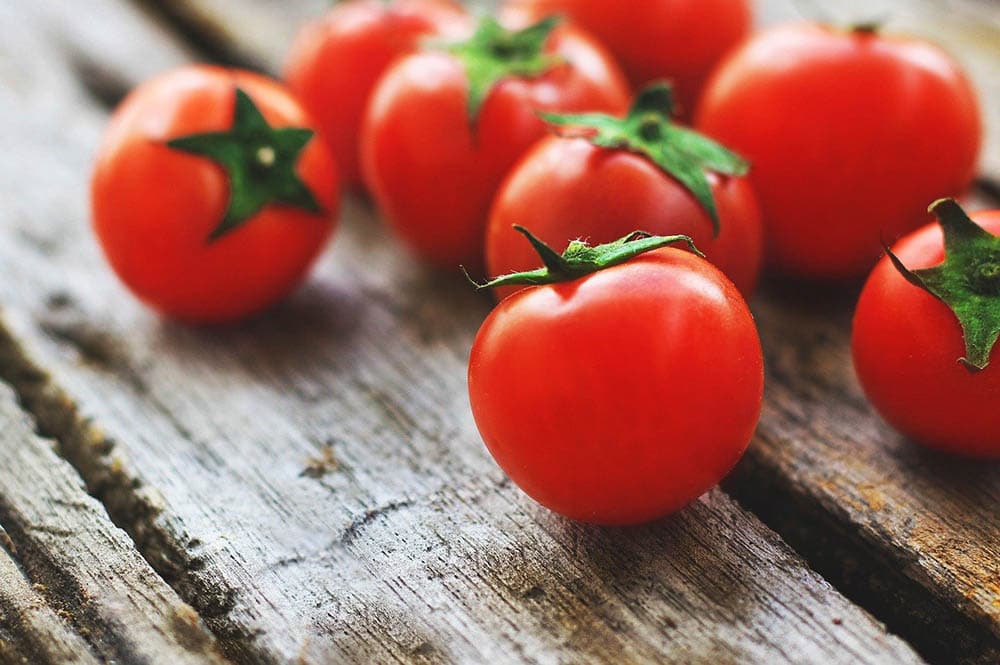
5. Watermelons
It makes sense that watermelons would be safe for rats considering that they are so closely related to cantaloupes. Only give rats a small slice of these melons, especially when you want to reward good behavior.
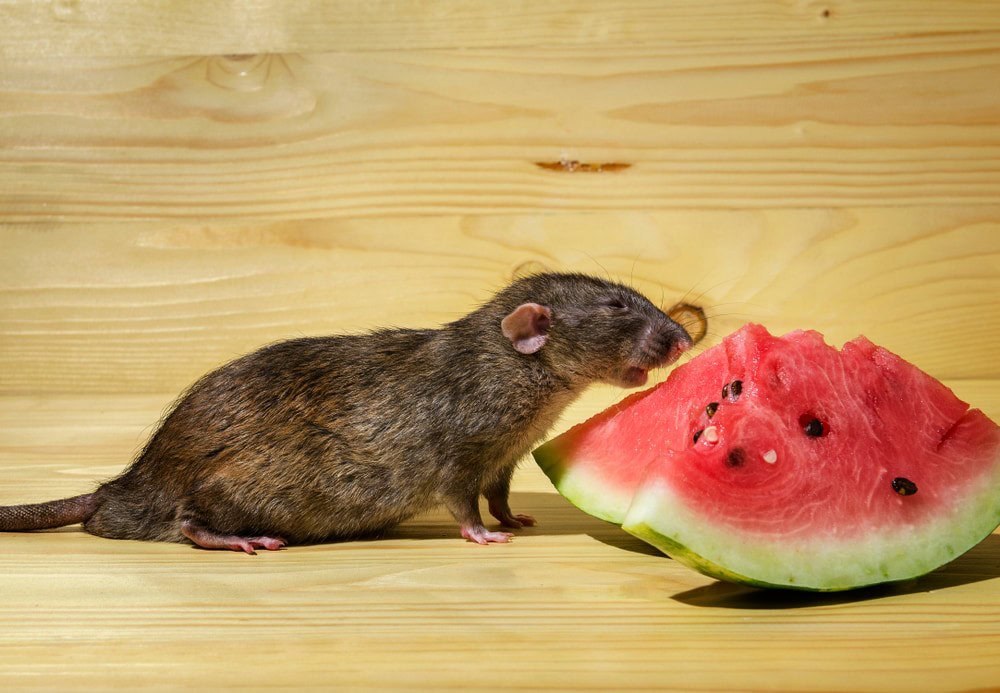
A Caution to Rat Owners
An important fact to know about rats is that they lack the ability to vomit. Once they ingest something, there is no going back. Food must pass through a rat’s digestive system in order to get rid of it. Always be extra careful during feedings if you have a pet rat. Here are a few foods you should avoid giving to them because they are toxic for them:
- Raw potatoes
- Rhubarb
- Avocado skin
- Dried Corn
- Citrus Fruits
Likewise, it is best to avoid the following foods as they will cause excessive gas to your rat:
- Cabbage
- Brussels Sprouts

Conclusion
Moderation is key when allowing your rats to have a snack. Remember that their main diet should come from the rat food you buy at the pet store, with only 10 percent, or a maximum of 20 percent, coming from supplemental foods. If you’re unsure if a specific food is safe, do a quick search on the internet. If you still can’t find the information you’re looking for, it is better to be cautious and stick to treats that you know are going to digest well.
Did it ever occur to you:
